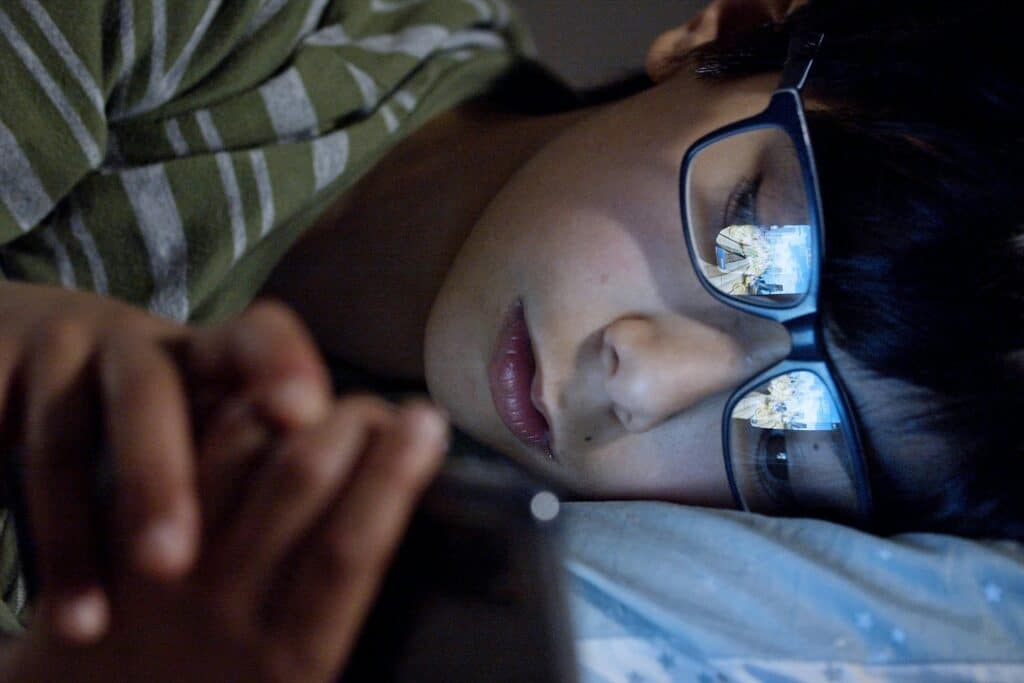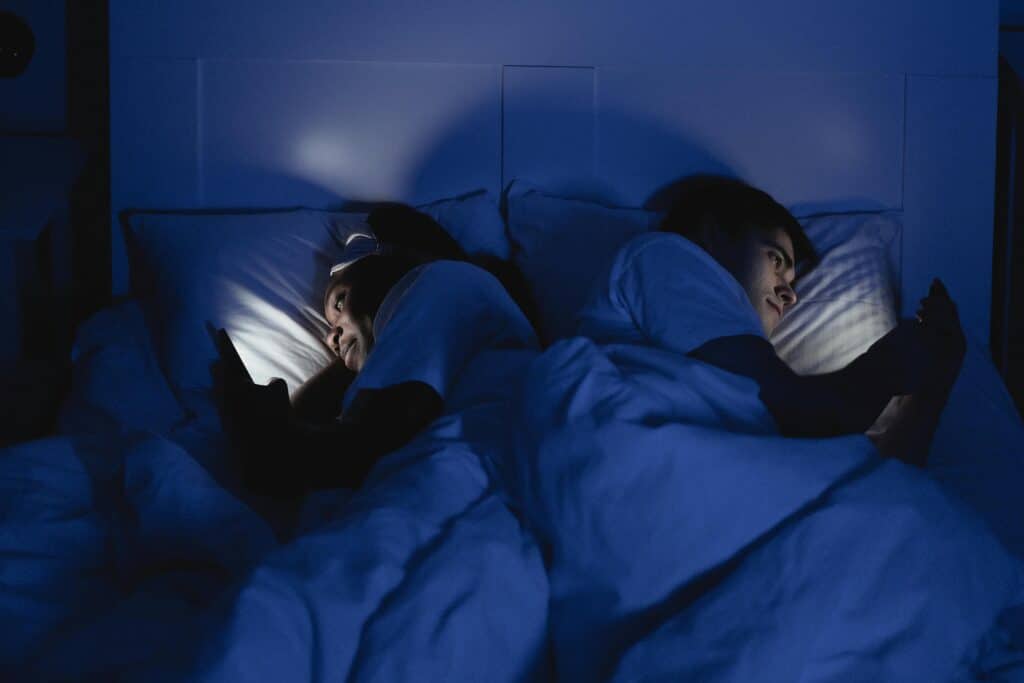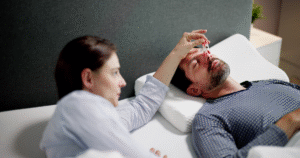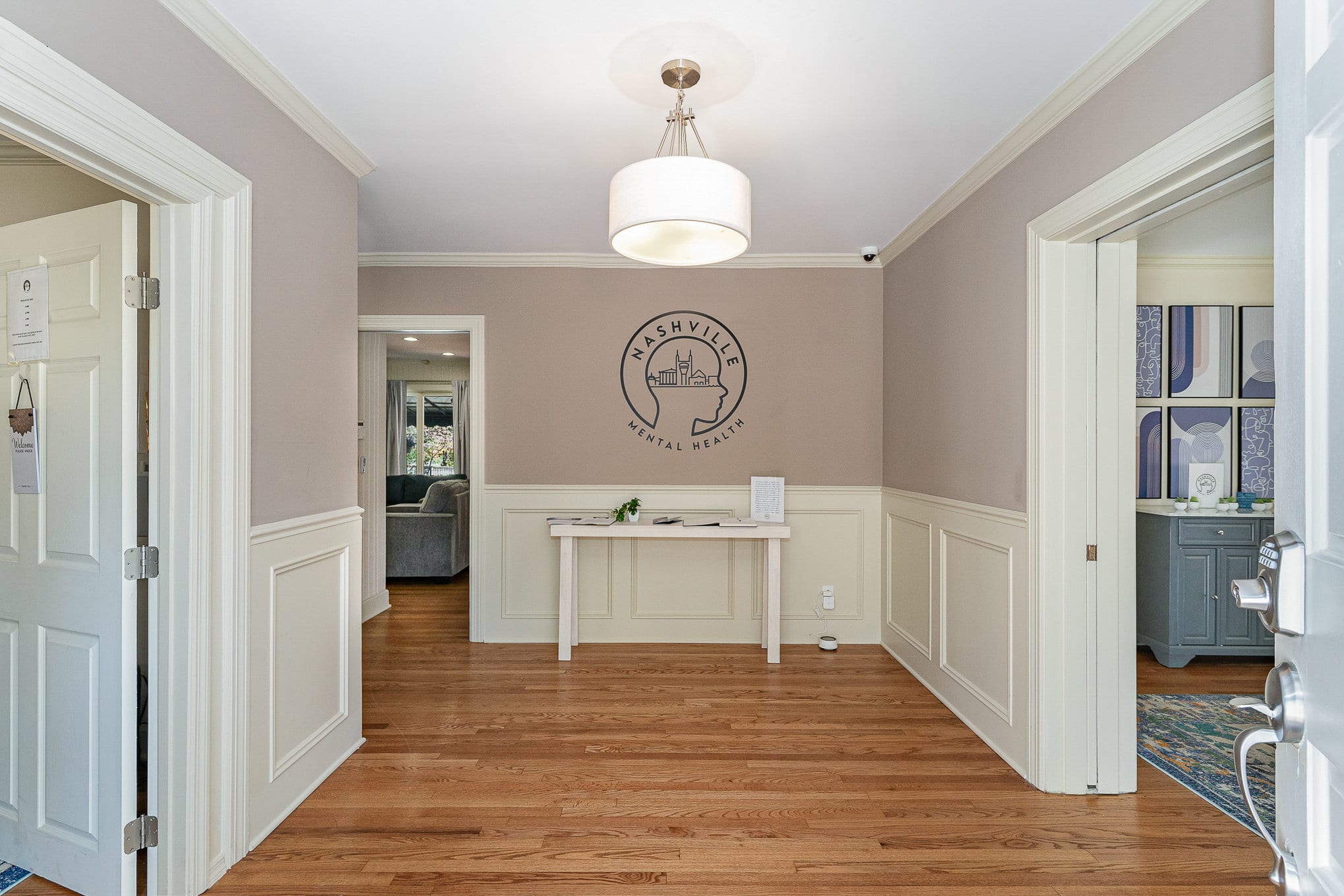How Screen Time Affects Sleep: What Kids and Parents Need to Know
We all love using our phones, tablets, computers, and TVs. But have you ever stayed up late using your smartphone, and then found it hard to fall asleep? That’s because screen time can mess with your sleep. This article helps you understand how screen time and sleep are connected and what you can do to have healthier nights.

Nashville Mental Health
What Is Screen Time?
Screen time is the time we spend looking at screens. This includes:
- Watching TV or videos
- Playing video games
- Using a mobile phone
- Chatting on a computer or laptop
- Listening to a podcast or music on a device
Even reading or doing homework on screens counts. We use screens for communication, fun, learning, and more. But too much can affect our health, especially our sleep.
Why Is Sleep So Important?
Sleep helps your body and brain rest and grow. While you sleep:
- Your heart rate slows down
- Your mind gets rid of stress
- Your circulatory system heals
- Your body fights illness like the flu
Good sleep also helps you focus in school, move better in sports, and make smart choices. That’s why doctors, like the American Academy of Pediatrics, say kids should get 9 to 12 hours of sleep a night.
How Screens Can Hurt Sleep
When you use electronics close to bedtime, it can confuse your brain. Your body works on a daily rhythm called the circadian rhythm. This rhythm tells you when to wake up and when to sleep. But looking at a screen at night can mess that rhythm up.

The Power of Light
Screens give off a kind of light called blue light. It’s part of the visible spectrum—the light your eyes can see. Blue light tricks your brain into thinking it’s still daytime. This keeps your brain awake and stops it from making a sleep hormone called melatonin.
Melatonin tells your body it’s time to go to sleep. When blue light hits your eyes, your body makes less melatonin. This causes problems with:
- Sleep cycle
- Latency (how long it takes to fall asleep)
- Wakefulness
- Alertness during the day
Too Much Screen Time = Sleep Problems
When screen time becomes a habit before bed, it may lead to:
- Trouble falling asleep (insomnia)
- Waking up often during the night
- Feeling tired during the day (sleep deprivation)
- Mood changes or bad behavior
- Poor cognition or thinking skills
- Higher stress
The Centers for Disease Control and Prevention says not getting enough sleep can even lead to heart disease, hypertension (high blood pressure), and weight gain.
What Does the Research Say?
Studies from places like the National Sleep Foundation and the Norwegian Institute of Public Health have shown that kids who use electronics like phones and tablets at night:
- Fall asleep later
- Sleep fewer hours
- Have more tiredness in the morning
- Have higher risk of obesity and poor mental health
One study from Norway found that even just one hour of screen use at night can mess with your sleep.
Screens in the Bedroom
Keeping screens in the bedroom can make things worse. If your bed is a place where you also play games, watch videos, or scroll the internet, your body gets confused. It stops seeing your bed as a place to rest.
That’s why sleep experts say to only use your bed for sleeping. No phones. No TV. Just rest.
Tips for Better Sleep and Less Screen Time
Here are some easy tips to help your sleep hygiene—that means the healthy steps you take to get good sleep.
1. Power Down Early
Turn off screens at least one hour before bedtime. This gives your brain time to relax.
2. Use Night Mode or Glasses
If you must use a screen, turn on night mode or wear special glasses that block blue light.
Nashville Mental Health
3. Keep Screens Out of the Bedroom
Charge your phone in the living room or kitchen, not next to your mattress.
4. Create a Calming Bedtime Routine
Do relaxing things like:
- Reading a book
- Taking a warm shower
- Listening to white noise
- Doing gentle meditation or relaxation exercises
5. Move Your Body
Daily physical activity or exercise helps you fall asleep faster and stay asleep longer.
How Technology Can Help (Yes, Really!)
Not all technology is bad! Some tools can actually help with sleep:
- Mobile apps for meditation or breathing
- Music or podcasts with calming sounds
- Apps that dim the color and wavelength of screen light
- Sleep tracking apps that give you helpful data
Just be sure to use them earlier in the evening, not right before bed.
What Happens When You Sleep Better?
When you reduce screen time and improve sleep hygiene, you may notice:
- More energy
- Better mood
- Improved focus
- Healthier heart rate variability
- Lower blood pressure
- Better school performance
- Even weight loss for some people
You’ll also lower your risk of long-term problems like disease, anxiety, and depression. Sleep helps your brain, body, and emotions stay strong.
Final Thoughts
Screen time is fun, and it can even help us learn and stay connected. But too much screen time—especially before bed—can hurt your sleep and health.
By understanding how melatonin, light, and the circadian rhythm work, you can make smart choices. Power down early. Protect your eyes. Keep your bedroom for sleeping. Use tools that help, not hurt. Your body and brain will thank you.

FAQs About Screen Time and Sleep
1. Why does screen time make it harder to sleep?
Screens give off blue light that tricks your brain into staying awake. This lowers melatonin, which helps you fall asleep.
2. What is the circadian rhythm?
The circadian rhythm is your body’s natural 24-hour clock. It tells you when to be awake and when to sleep.
3. How much screen time is too much before bed?
Any screen time within 1 hour of bedtime can mess with your sleep cycle. It’s best to stop using screens 1–2 hours before bed.
4. Can using a phone before bed cause insomnia?
Yes. Using a mobile phone or laptop before bed can cause insomnia, making it hard to fall or stay asleep.
Nashville Mental Health
5. What can help me sleep better?
Turn off screens early, move your body, follow a bedtime routine, and keep your bedroom quiet and dark for good sleep hygiene. Contact us or visit SAMHSA for more information.









